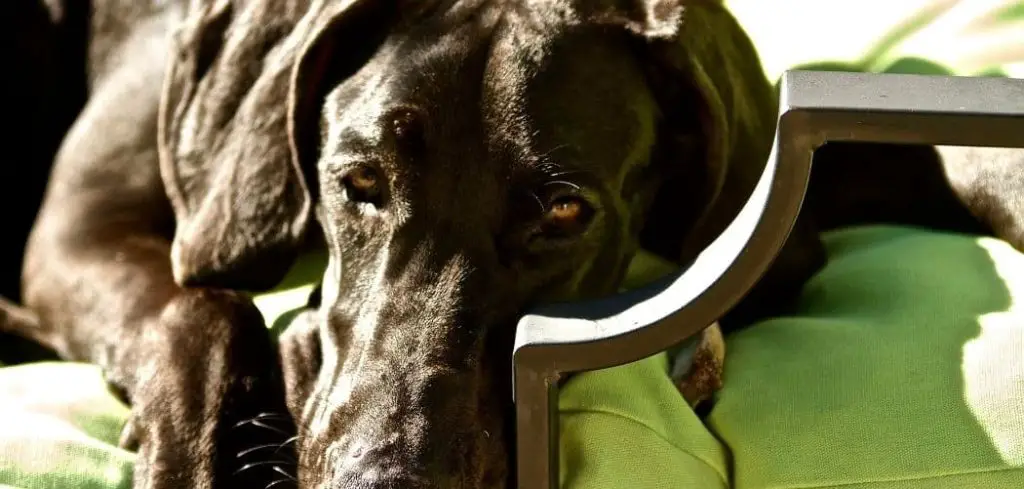It’s always worrying when your dog isn’t eating, and it becomes even more puzzling if you notice their nose feels unusually warm. While a warm nose alone doesn’t always signal danger, paired with loss of appetite, it could be a symptom worth paying attention to.
We outline the common causes of dog has warm nose and not eating, what you can do at home, and when to seek veterinary help.
Dog Has Warm Nose and Not Eating — Why It Happens
A warm nose with decreased appetite can be a sign of fever, infection, heat exposure, or early illness. Your dog may also be suffering from dehydration, respiratory issues, or something as simple as mild overheating.
On the other hand, certain chronic conditions can also start with subtle symptoms like these. This combination shouldn’t be ignored, especially if your dog becomes lethargic or shows additional symptoms.

Common Causes of Dog Has Warm Nose and Not Eating
Fever or Infection
A warm nose may reflect a rise in your dog’s body temperature. When a dog has a fever due to a bacterial or viral infection, the body reacts by warming up and often causes appetite suppression.
Other signs may include lethargy, shivering, or nasal discharge. Infections like kennel cough or respiratory viruses can start subtly but become more serious without prompt attention.
Dehydration
If your dog has been less active, is panting more than usual, or has had recent diarrhea or vomiting, dehydration might be the cause.
A dry, warm nose is a common indicator. Dehydration also reduces your dog’s appetite and can quickly lead to more severe complications if not corrected.
Read more: Dog Fever and Not Eating (Causes and What To Do)
Heat Exposure or Mild Overheating
Dogs regulate their body temperature through panting and their noses. A dog exposed to heat, especially in warm environments or after vigorous activity, might develop a warm nose.
Even mild overheating can reduce appetite, especially in hot weather or poorly ventilated areas.
Early Illness or General Malaise
A dog may show a warm nose and a drop in appetite at the very beginning stages of illness. Digestive upsets, viral infections, or fatigue from overexertion can cause these vague symptoms.
This can be especially concerning if your dog is usually food-motivated and suddenly refuses meals.
Dental Problems or Oral Pain
If your dog is refusing to eat due to mouth pain, their nose might warm up from inflammation in the body.
Tooth infections, gum disease, or even something stuck in the mouth can cause a systemic response including fever and appetite loss.
Chronic Illness (Liver, Kidney, or Metabolic Disorders)
Chronic conditions can start subtly. Dogs with liver or kidney disease may show reduced appetite early on. Their body temperature can also fluctuate due to inflammation or toxin buildup.
You might not see major symptoms yet, but a warm nose and appetite loss may be early clues.
What to Do If Your Dog Has Warm Nose and Not Eating
First, check your dog for other signs: lethargy, vomiting, diarrhea, coughing, or changes in behavior. Monitor their temperature using a dog-safe rectal thermometer—a normal dog temperature ranges from 101 to 102.5°F.
Make sure your dog is drinking water. Offer them ice cubes or a small amount of low-sodium broth to encourage hydration.
Avoid forcing food. Instead, try offering bland options like boiled chicken and rice or a vet-approved appetite stimulant.
Let your dog rest in a cool, quiet area. If heat is a factor, make sure fans or air conditioning are available.
If the symptoms last more than 24 hours, or new symptoms appear, don’t wait—contact your vet for a full examination.
When to Call or Visit Your Vet
If your dog has a warm nose and refuses food for more than a day, it’s best to consult your vet. Even more urgently, call your vet if:
Your dog is also vomiting or has diarrhea
Their nose is dry, cracked, or bleeding
They appear lethargic or disoriented
There are signs of pain, coughing, or nasal discharge
Their temperature is over 103°F or under 99°F
Prompt diagnosis can prevent small issues from turning into serious conditions.
Read more: Dog coughing and gagging not eating (What it means)
Key Takeaway
A warm nose alone isn’t always concerning, but when combined with appetite loss, it deserves your attention. This pairing can signal anything from mild dehydration to more serious infections or chronic disease.
Stay observant, support your dog with hydration and rest, and contact your veterinarian if symptoms persist or worsen. Trust your instincts—you know your dog best.
